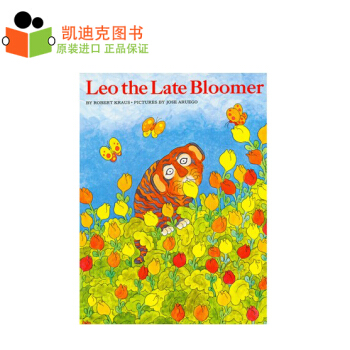![Managing up[管理者:如何与上司打交道] 英文原版 [平装]](https://pic.windowsfront.com/19041430/8714685b-16fc-4df4-a8a4-a7f2209906d0.jpg)

具体描述
内容简介
Everyone has a boss. And anyone who has aspired to move up the corporate ladder knows that their relationship with those they report to is crucial. In Managing Up Rosanne Badowski offers a straightforward, entertaining, no-holds-barred account of what it takes to make your relationship with your boss work to your advantage, no matter where you stand in the corporate hierarchy.Told through rich, colorful anecdotes about her years spent working with one of the smartest, most demanding and dynamic business leaders of the twentieth century, legendary GE CEO Jack Welch, Badowski reveals the secrets to career success she has gleaned over the years. At heart, it's about working with the person above you to create a productive and effective partnership.
Everyone is a manager, in one way or another, Badowski points out. She discusses first-hand what it's like to have to be a mind reader, to anticipate the future, to plan for the unexpected, and to perform the impossible. With refreshing candor and a hint of attitude, Badowski's advice is unlike any other. She advises us that "Impatience is a virtue," to "Have no shame," and to "Beware the too-quiet office." Having worked in one of the most challenging, high-profile corporate environments anywhere, no one knows more about prioritizing, about making decisions on behalf of your boss, about sifting through a daily barrage of data and information, about multitasking at warp speed, and exhibiting grace under fire. Ultimately, Badowski says, excelling at what you do is about a shared passion for the job.
Managing Up is an invaluable guide for managing your career and juggling responsibilities with finesse and confidence. It should become a management bible for anyone hoping to get ahead in their profession.
作者简介
ROSANNE BADOWSKI has worked with former GE CEO Jack Welch for thirteen years. Prior to becoming Welch’s executive assistant, she spent twelve years in administrative positions in international human resources, executive management, and organization planning at GE. She lives in Easton, Connecticut.精彩书评
“Rosanne Badowski’s extraordinary fifteen years in the trenches with Jack Welch have given her unparalleled expertise in the art of leadership. Far more than an ordinary how-to book, Managing Up is a terrifically engaging and entertaining read, filled with stories and lessons from a woman who has seen it all.”- Noel Tichy, professor at the University of Michigan Business School and author of The Cycle of Leadership: How Great Leaders Teach Their Organizations to Win
“I always wondered how Jack did it… and now I know one big reason. Rosanne Badowski. Managing history’s greatest manager – that’s what Managing Up is all about, and it’s riveting. Stand back, Peter Drucker. If you’re the boss (or think you are)… read it. If you work for the boss, read it twice. You can’t afford not to.”
- Gerry Roche, senior chairman of Heidrick & Struggles
“Rosanne has seen it all… Her book is an inside view of the pressures and life in the executive office.”
- Bob Wright, vice chairman and executive officer, GE; chairman & chief executive officer, NBC
“Managing Up shows what you can learn when you keep your eyes and ears open and happen to work for/with a terrific boss. Great lessons for readers here, managing up, down and sideways.”
- Warren Bennis, Distinguished Professor of Business at the University of Southern California, and co-author of GEEKS AND GEEZERS
From the Hardcover edition.
用户评价
这本书的语言风格是那种极其精炼、直击要害的,很少有冗余的形容词和空洞的口号。作者的笔触精准而有力,仿佛是在进行一次高效的咨询报告。我发现自己经常需要放慢语速,反复咀嚼那些看似简单却蕴含深意的句子,因为每一个词都像是经过千锤百炼才被放置在那个位置的。这种对文字的极致运用,使得信息密度非常高,你不会感到自己在浪费时间翻页。对于像我这样时间宝贵、追求效率的职场人士来说,这种“惜字如金”的表达方式简直是福音,它将复杂的职场情商浓缩成了易于消化和记忆的精华。
评分最让我感到惊喜的是,这本书对“情境适应性”的强调。它没有将所有管理者和上司都归为同一类型,而是提供了丰富的工具箱,让你学会根据不同的个性和组织文化,灵活调整自己的沟通策略。这避免了“一刀切”的僵硬教条,反而赋予了读者极大的灵活性和判断力。读完之后,我感觉自己不再是那个被动地等待指示的执行者,而更像是一个主动的“策略规划师”,能够预判不同场景下的最佳行动方案。这种从被动服从到主动塑造工作环境的转变,无疑是这本书带给我最深远的价值所在,让我对未来职场中的挑战充满了信心和期待。
评分阅读这本书的过程,更像是一次深入的自我反思之旅。它没有直接提供那种“万能药”式的速成秘籍,而是巧妙地引导你审视自己当前与上级互动模式中的盲点和惯性思维。每读完一个章节,我都会停下来,默默对照自己的工作情境,思考“如果我当时那样做,结果会怎样?”这种沉浸式的代入感,是很多同类书籍难以达到的。它促使我从一个更宏观、更具战略性的角度去看待人际关系中的权力结构,而不是仅仅停留在“如何让老板高兴”的表面功夫上。这种由内而外的认知转变,比任何具体的技巧都更加宝贵和持久,让人感觉这本书不仅仅是关于“管理他人”,更是关于“管理自我认知”。
评分这本书的排版逻辑清晰得令人赞叹,每一章的结构都像是精心设计过的流程图,引导着读者一步步深入理解复杂的职场动态。作者在组织论点时,似乎非常懂得如何平衡理论深度与实际操作性之间的关系,不会让你感到被晦涩的学术术语淹没,而是总能及时地抛出一个贴近现实的案例进行佐证。我尤其欣赏它在引入新概念时所采用的层层递进的方式,仿佛在为我们搭建一个稳固的知识阶梯,确保读者在攀登高处时不会感到吃力或迷失方向。这种对阅读体验的细致考量,让原本可能枯燥的“向上管理”主题变得生动有趣,读起来毫不费力,仿佛时间都加速了。
评分这本书的封面设计真是让人眼前一亮,那种沉稳的蓝色调配合简约的字体,立刻就传达出一种专业而又不失亲和力的感觉。我拿到书的时候,首先就被它的装帧质量吸引了,平装版的纸张拿在手里很有分量,不是那种廉价的轻飘感,这让我对接下来阅读的内容充满了期待。通常我不太在意书的外观,但这本书的整体美学处理得非常到位,让人愿意把它摆在书架上,而不是匆匆塞进抽屉里。它给我的第一印象就是“可靠”和“值得信赖”,就像一个经验丰富的前辈准备与你促膝长谈一样,没有太多花哨的修饰,直奔主题的专业气息扑面而来。这种视觉上的舒适感,在很大程度上降低了阅读技术性书籍时的心理门槛,让我更愿意投入时间去细细品味其中的智慧。
评分非常好!质量也很好!
评分很好
评分听广播的时候知道了这本书,看了看果真受益匪浅。
评分印刷质量很好,翻阅感觉很舒服
评分京东买书一如既往的给力,朋友介绍的, 我希望以后可以买便于携带的书,这书大本,装包不好装啊。还没看,希望好看 京东的货,应该是正版 记得有一次,我独自一人出来逛街。逛了大半天,什么也没有买到,不是东西不合适,就是价格太高,就在我准备两手空空打道回府的时候,无意中发现前方不远处有一个卖小百货的商店,走上前去一看,商店里面正挂着一些极其精致漂亮的背包,那时为了不至于两手空空回去,我总想凑合着买点东西,经过一番讨价还价,便商定了价格,付了钱之后,我正准备拿起我相中的背包离开的时候,无意中发现背包上有一根拉链坏了,于是我又重新挑选了一个,正要转身离开,那店主居然耍赖说我还没有付钱,硬拉着要我付钱,还说什么谁能证明你付了钱呢?没办法,我是自己一个人去的,旁边又没有其它顾客,谁能证明呢?天晓得。我辩不过她,只好愤愤不平地两手空空回去了。从那以后,我吃一堑,长一智,我就常常到网上购物了。好了,我现在来说说这本书的观感吧,一个人重要的是找到自己的腔调,不论说话还是写字。腔调一旦确立,就好比打架有了块趁手的板砖,怎么使怎么顺手,怎么拍怎么有劲,顺带着身体姿态也挥洒自如,打架简直成了舞蹈,兼有了美感和韵味。要论到写字,腔调甚至先于主题,它是一个人特有的形式,或者工具;不这么说,不这么写,就会别扭;工欲善其事,必先利其器,腔调有时候就是“器”,有时候又是“事”,对一篇文章或者一本书来说,器就是事,事就是器。这本书,的确是用他特有的腔调表达了对“腔调”本身的赞美。|好大一本书,是正版!各种不错!只是插图太多,有占篇符之嫌。故事很精彩,女儿很喜欢。书写的不错,能消除人的心瘾。目前已经戒烟第三天了,书拿到手挺有分量的,包装完好。还会继续来,一直就想买这本书,太谢谢京东了,发货神速,两天就到了,超给力的!5分!了解京东:2013年3月30日晚间,京东商城正式将原域名360buy更换为jd,并同步推出名为“joy”的吉祥物形象,其首页也进行了一定程度改版。此外,用户在输入jingdong域名后,网页也自动跳转至jd。对于更换域名,京东方面表示,相对于原域名360buy,新切换的域名jd更符合中国用户语言习惯,简洁明了,使全球消费者都可以方便快捷地访问京东。同时,作为“京东”二字的拼音首字母拼写,jd也更易于和京东品牌产生联想,有利于京东品牌形象的传播和提升。京东在进步,京东越做越大。||||好了,现在给大家介绍两本本好书:《谢谢你离开我》是张小娴在《想念》后时隔两年推出的新散文集。从拿到文稿到把它送到读者面前,几个月的时间,欣喜与不舍交杂。这是张小娴最美的散文。美在每个充满灵性的文字,美在细细道来的倾诉话语。美在作者书写时真实饱满的情绪,更美在打动人心的厚重情感。从装祯到设计前所未有的突破,每个精致跳动的文字,不再只是黑白配,而是有了鲜艳的色彩,首次全彩印刷,法国著名唯美派插画大师,亲绘插图。|两年的等待加最美的文字,就是你面前这本最值得期待的新作。《洗脑术:怎样有逻辑地说服他人》全球最高端隐秘的心理学课程,彻底改变你思维逻辑的头脑风暴。白宫智囊团、美国FBI、全球十大上市公司总裁都在秘密学习!当今世界最高明的思想控制与精神绑架,政治、宗教、信仰给我们的终极启示。全球最高端隐秘的心理学课程,一次彻底改变你思维逻辑的头脑风暴。从国家、宗教信仰的层面透析“思维的真相”。白宫智囊团、美国FBI、全球十大上市公司总裁都在秘密学习!《洗脑术:怎样有逻辑地说服他人》涉及心理学、社会学、神经生物学、医学、犯罪学、传播学适用于:读心、攻心、高端谈判、公关危机、企业管理、情感对话……洗脑是所有公司不愿意承认,却是真实存在的公司潜规则。它不仅普遍存在,而且无孔不入。阅读本书,你将获悉:怎样快速说服别人,让人无条件相信你?如何给人完美的第一印象,培养无法抗拒的个人魅力?如何走进他人的大脑,控制他们的思想?怎样引导他人的情绪,并将你的意志灌输给他们?如何构建一种信仰,为别人造梦?
评分哈哈哈
评分很好
评分京东买书一如既往的给力,朋友介绍的, 我希望以后可以买便于携带的书,这书大本,装包不好装啊。还没看,希望好看 京东的货,应该是正版 记得有一次,我独自一人出来逛街。逛了大半天,什么也没有买到,不是东西不合适,就是价格太高,就在我准备两手空空打道回府的时候,无意中发现前方不远处有一个卖小百货的商店,走上前去一看,商店里面正挂着一些极其精致漂亮的背包,那时为了不至于两手空空回去,我总想凑合着买点东西,经过一番讨价还价,便商定了价格,付了钱之后,我正准备拿起我相中的背包离开的时候,无意中发现背包上有一根拉链坏了,于是我又重新挑选了一个,正要转身离开,那店主居然耍赖说我还没有付钱,硬拉着要我付钱,还说什么谁能证明你付了钱呢?没办法,我是自己一个人去的,旁边又没有其它顾客,谁能证明呢?天晓得。我辩不过她,只好愤愤不平地两手空空回去了。从那以后,我吃一堑,长一智,我就常常到网上购物了。好了,我现在来说说这本书的观感吧,一个人重要的是找到自己的腔调,不论说话还是写字。腔调一旦确立,就好比打架有了块趁手的板砖,怎么使怎么顺手,怎么拍怎么有劲,顺带着身体姿态也挥洒自如,打架简直成了舞蹈,兼有了美感和韵味。要论到写字,腔调甚至先于主题,它是一个人特有的形式,或者工具;不这么说,不这么写,就会别扭;工欲善其事,必先利其器,腔调有时候就是“器”,有时候又是“事”,对一篇文章或者一本书来说,器就是事,事就是器。这本书,的确是用他特有的腔调表达了对“腔调”本身的赞美。|好大一本书,是正版!各种不错!只是插图太多,有占篇符之嫌。故事很精彩,女儿很喜欢。书写的不错,能消除人的心瘾。目前已经戒烟第三天了,书拿到手挺有分量的,包装完好。还会继续来,一直就想买这本书,太谢谢京东了,发货神速,两天就到了,超给力的!5分!了解京东:2013年3月30日晚间,京东商城正式将原域名360buy更换为jd,并同步推出名为“joy”的吉祥物形象,其首页也进行了一定程度改版。此外,用户在输入jingdong域名后,网页也自动跳转至jd。对于更换域名,京东方面表示,相对于原域名360buy,新切换的域名jd更符合中国用户语言习惯,简洁明了,使全球消费者都可以方便快捷地访问京东。同时,作为“京东”二字的拼音首字母拼写,jd也更易于和京东品牌产生联想,有利于京东品牌形象的传播和提升。京东在进步,京东越做越大。||||好了,现在给大家介绍两本本好书:《谢谢你离开我》是张小娴在《想念》后时隔两年推出的新散文集。从拿到文稿到把它送到读者面前,几个月的时间,欣喜与不舍交杂。这是张小娴最美的散文。美在每个充满灵性的文字,美在细细道来的倾诉话语。美在作者书写时真实饱满的情绪,更美在打动人心的厚重情感。从装祯到设计前所未有的突破,每个精致跳动的文字,不再只是黑白配,而是有了鲜艳的色彩,首次全彩印刷,法国著名唯美派插画大师,亲绘插图。|两年的等待加最美的文字,就是你面前这本最值得期待的新作。《洗脑术:怎样有逻辑地说服他人》全球最高端隐秘的心理学课程,彻底改变你思维逻辑的头脑风暴。白宫智囊团、美国FBI、全球十大上市公司总裁都在秘密学习!当今世界最高明的思想控制与精神绑架,政治、宗教、信仰给我们的终极启示。全球最高端隐秘的心理学课程,一次彻底改变你思维逻辑的头脑风暴。从国家、宗教信仰的层面透析“思维的真相”。白宫智囊团、美国FBI、全球十大上市公司总裁都在秘密学习!《洗脑术:怎样有逻辑地说服他人》涉及心理学、社会学、神经生物学、医学、犯罪学、传播学适用于:读心、攻心、高端谈判、公关危机、企业管理、情感对话……洗脑是所有公司不愿意承认,却是真实存在的公司潜规则。它不仅普遍存在,而且无孔不入。阅读本书,你将获悉:怎样快速说服别人,让人无条件相信你?如何给人完美的第一印象,培养无法抗拒的个人魅力?如何走进他人的大脑,控制他们的思想?怎样引导他人的情绪,并将你的意志灌输给他们?如何构建一种信仰,为别人造梦?
评分听广播的时候知道了这本书,看了看果真受益匪浅。
相关图书
本站所有内容均为互联网搜索引擎提供的公开搜索信息,本站不存储任何数据与内容,任何内容与数据均与本站无关,如有需要请联系相关搜索引擎包括但不限于百度,google,bing,sogou 等
© 2026 book.coffeedeals.club All Rights Reserved. 静流书站 版权所有

![Hard Times 艰难时世 [平装] pdf epub mobi 电子书 下载](https://pic.windowsfront.com/19043408/rBEhWlKis4YIAAAAABEmEGDOkaIAAGdrgDzTqUAESYo587.jpg)
![The American 美国人 英文原版 [平装] pdf epub mobi 电子书 下载](https://pic.windowsfront.com/19043462/rBEhWFJ6HY8IAAAAAACwo80gFgYAAFFYQLbTVgAALC7957.jpg)
![HR from the Outside In: Six Competencies for the Future of Human Resources [精装] [未来HR的六项修炼] pdf epub mobi 电子书 下载](https://pic.windowsfront.com/19275163/rBEHZ1BQVDkIAAAAAABMwaZWweIAABJzQG28gQAAEzZ748.jpg)
![What Was the Gold Rush? 英文原版 [平装] [8-12岁] pdf epub mobi 电子书 下载](https://pic.windowsfront.com/19278746/rBEQWFE1lMcIAAAAAAC716UVhQIAABf6gBnSOAAALvv091.jpg)
![Amelia Bedelia, Cub Reporter (I Can Read, Level 2) [平装] [4-8岁] pdf epub mobi 电子书 下载](https://pic.windowsfront.com/19285533/550bf4f8N0c6dd76b.jpg)
![Batman: Battle for the Cowl [平装] pdf epub mobi 电子书 下载](https://pic.windowsfront.com/19352652/rBEhVFJbm44IAAAAAADtO1GU4LcAAEHYwFpcX4AAO1T439.jpg)
![Knuffle Bunny Free: An Unexpected Diversion [平装] pdf epub mobi 电子书 下载](https://pic.windowsfront.com/19455619/rBEhVFKlnZUIAAAAAAH_rpJBoUoAAGkmgAxFxcAAf_G722.jpg)
![My Bus 我的巴士 [精装] [4-8岁] pdf epub mobi 电子书 下载](https://pic.windowsfront.com/19472823/53e067d7N84e2c457.jpg)
![Holiday Activity Tin [Cards] Usborne英文原版 [精装] pdf epub mobi 电子书 下载](https://pic.windowsfront.com/19476652/rBEQWFNfBjUIAAAAAAEFcIqTdncAAFuzACjJ4gAAQWI557.jpg)
![Hyperion [Mass Market Paperbound] 英文原版 [Mass Market Paperbound] pdf epub mobi 电子书 下载](https://pic.windowsfront.com/19480324/5469bf6dN0ec337f5.jpg)
![Ideas and Opinions 英文原版 [精装] pdf epub mobi 电子书 下载](https://pic.windowsfront.com/19483667/5469d504Nd52fb204.jpg)
![A Little History Of Science [平装] [科学小史] pdf epub mobi 电子书 下载](https://pic.windowsfront.com/19573341/56aae168N2603dcb2.jpg)
![DK Readers L2: LEGO Star Wars: The Force Awakens [平装] [04--08] pdf epub mobi 电子书 下载](https://pic.windowsfront.com/19638180/57844ce9N0b6917a9.jpg)
![Judy Moody and Friends: Mrs. Moody in the Birthd [平装] [04--06] pdf epub mobi 电子书 下载](https://pic.windowsfront.com/19740544/578760caNce1eb924.jpg)
![The BFG 斯皮尔伯格新作圆梦巨人原版图书 特别版 英文原版 [平装] [7 - 11 岁] pdf epub mobi 电子书 下载](https://pic.windowsfront.com/19824476/58097024Nbc84eccb.jpg)
![Pip and Posy: The New Friend [精装] [02--05] pdf epub mobi 电子书 下载](https://pic.windowsfront.com/19827308/584e44fbN0f0f3713.jpg)



